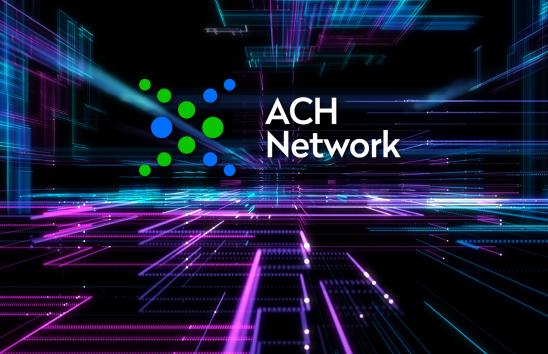BMS Content and Capabilities
Afinis
The IFX Specification addresses a broad array of business capabilities necessary to enable banking data exchanges. On this page we describe the standard from the point of view of business capability. Be sure to look at the Standard Framework page, which describes the technical design patterns underlying the IFX Specification.
IFX Forum Working Groups define the business requirements and develop content for the specification applicable to specific sectors of the industry and particular use cases. Working groups are not permanent, though many are long-lived. Over the years the IFX Forum has had a variety of working groups that developed business domain-specific content in addition to general content applicable to a broad range of banking operations.
General Banking
The IFX Specification content covers a broad range of capabilities necessary for most core banking functions, including account management, customer management, statements, authorizations, loans, payments, checks and much more.
| Benefit | Feature |
|---|---|
| Accounts |
|
| Parties (incl. Customer) |
|
| Bills and Billers |
|
| Statements |
|
| Transactions (incl. Debit, Credit, Transfer) |
|
| Notes |
|
| Checks |
|
| Recurring Models |
|
Branch Banking
Taking advantage of the benefits of network environment and the IFX Service Oriented Architecture, which supports internal data communications and channel independence, the Branch Banking Services functions of IFX include a set of messages and objects that have been designed to address the complexities associated with serving customers in a branch banking environment.
| Benefit | Feature |
|---|---|
| Teller Drawer |
|
| Extended maintenance of accounts |
|
| Create and maintain records for various parties |
|
| Supports account statement inquiry |
|
| Supports account transaction and image inquiry |
|
| Supports notes at the account, party, or transaction |
|
| Add or delete a Stop Check |
|
| Create single or recurring transfer of funds |
|
Corporate and Business Banking
Addressing the Complex Corporate Banking Needs with IFX
Leading financial institutions and trading partners developed IFX for Business Banking, working together to create a useful set of messages and elements that cover a wide variety of business banking activities and rules.
The required business rules that support the banking needs of corporate customers can be highly complex and encompass detailed processing rules that are typically not seen in a consumer-based banking model. Requirements to support features such as multiple payments with multiple due dates being applied to single invoices, and all of the possible permutations thereof, are more the norm than the exception.
Some of the uses of IFX in Business Banking include:
- Transmitting documents and information over the internet easily and with little intervention or reformatting
- Using standard formats for banking transactions in business/corporate day-to-day operations
- Exchanging payment instructions, bank confirmations, bank statements, receipts information and account reconciliation documents with banking partners and/or between organizations
- Automatically updating internal systems with the formatted data from any of these documents
Integrated Support for Retail and Wholesale Banking
Additionally, the IFX specification allows for optional integration of Retail and Wholesale banking services. IFX provides a wide range of retail banking features that can easily be integrated with banking applications that require support for both. This is particularly useful in inter-bank transactions, record keeping and data transmission.
| Benefit | Feature |
|---|---|
| Supports multiple Payment Origination models |
|
| Support for Direct Debit Origination |
|
| Control Notification |
|
| Payment Acknowledgment |
|
| Remittance Detail |
|
| Comprehensible Remittance Reporting |
|
| Positive Pay Services |
|
| Balance and Transaction Reporting |
|
| Check Order and Reorder |
|
| ISO 20022 Integration |
|
Card Management
IFX for Card Management
For IFX, “Card Management” is defined as the services related to the Issuing, Management and Servicing of Credit, Debit, Prepaid and Private Label cards. The services may be initiated by a customer service representative or through a customer-enabled channel such as the web or interactive voice response telephony (IVR). Examples include, but are not limited to, card origination, activation, replacement, lost/stolen, status changes, general maintenance, etc. Addressing Card Management with IFX
Including card management and servicing messages in the IFX specification assists financial institutions as they seek to enhance the services they offer customers, and it increases the efficiency of their operations.
The addition of card management material to IFX enables banks and card organizations to improve their customer experience and to deliver a broader array of products and services across multiple channels, contributing to an agile and flexible environment. IFX Card Management Features and Benefits
The card management and servicing elements are integrated into the IFX Framework — the foundation of the IFX Specification includes a set of common objects that can be used across multiple types of financial services. This facilitates the implementation of cross-service applications.
IFX may be used to offer services related to a card, account, party (customer), transactions, etc. using the content developed and defined in the section above.
| Benefit | Feature |
|---|---|
| Card object |
|
| Card Order |
|
- Effectively manage information specific to the relationship between a party and card
- Elements that may be different for one party and card from those for another party to the same card
- Effectively manage information specific to the relationship between a card and account
- Elements that may differ in the relationship between one card and an account compared to the relationship between another card and the same account
- A card may be linked to multiple checking, current, savings accounts as well as credit account(s)
- Rewards are point or monetary incentives accumulated based on financial or non-financial activity
- Rewards are used to retain customers, drive customer loyalty, and increase sales and other activity
- Card networks provide addenda data with the card transactions
- This data is displayed on statements and is required to be displayed for the CSRs and customers via the web and other channels
- This extension supports Airline, Vehicle Rental and Lodging addenda
ATM/POS
IFX for the ATM/POS Industry
Many of today’s ATM and POS environments use proprietary message formats. IFX is a business message specification that can be used as a financial industry standard eliminating the need for using proprietary message formats from ATMs or POS devices.
The benefits of IFX are numerous, including a more competitive vendor marketplace and easier integration with other channels and systems, as well as more detailed information to manage your network.
Addressing ATM/POS Industry Requirements with IFX
Though IFX is not specific to the ATM/POS industry, it is the defining standard for interoperability between ATM/POS terminals and authorizing systems.
The IFX business message specification used as a financial industry standard eliminates the need for proprietary message formats from ATM or POS devices. The multi-channel consistency (internet, ATM, POS, Teller, etc.) guarantees reliability and generates significant cost savings.
The Benefits of IFX Include:
- Easier integration with other channels and systems
- More detailed information to manage your network.
- Vendor and technology independence
- Rich and expanding feature set
Integrated with the Rest of IFX
IFX addresses the broader needs of the financial services industry with impact on the vertical lines of business, delivery channels and the vendors that sell into those channels. Financial institutions are implementing financial transactions using IFX for a number of different business offerings — for example, retail banking, commercial banking, wire transfers and bank-to-bank transactions.
| Benefit | Feature |
|---|---|
| Supports all types of financial transactions |
|
| Full support for security, customer and service profile information |
|
| ATM Management |
|
| ATM Inventory Management |
|
Electronic Bill Payment and Presentment
IFX for Electronic Bill Presentment and Payment
In 1997-98, the InteroperaBILL initiative, fostered by the Banking Industry Technology Secretariat (BITS) and supported by the National Automated Clearing House Association’s (NACHA) Council for Electronic Billing and Payment, defined a widely accepted set of business practices that define how EBPP transactions should be conducted. The effort that went into creating the IFX for EBPP message set was based on the Service Provider model for EBPP defined at that time.
The Service Provider model is based on the concept that the process of delivering a bill from an originator (“the Biller”) to the receiver (the “Customer”) and processing the payment of the bill through the internet requires the participation of at least two entities, but most likely will involve more than that, since customers may access bill presentment and payment information through a variety of channels. IFX for EBPP focuses on making required information available to everyone involved in delivering the service.
Addressing the Needs of Bill Presentment and Payment with IFX
The complex business models found in Electronic Bill Presentment and Payment (EBPP) environments create two types of data exchange requirements: the need to capture all of the transactional data itself and the necessity for reliable coordination of the communication of that data. By definition, EBPP applications are dependent on the networks that they connect to. In order to transfer billing data from the originator through one or more service providers to the recipient, significant interactions must take place. EBPP can only work if all of the entities involved in delivering the services are able to communicate together in a reliable, flexible, economical fashion.
The participating entities can be separate financial institutions, corporations/billers, or service providers of various varieties – all of which may or may not have pre-established relationships with each other, sit within the same corporate walls, or even be located within the same country. The challenge to creating a messaging standard for EBPP is in assuring the successful interoperation of all parties involved in delivering the required services.
IFX Electronic Bill Presentment and Payment Features and Benefits
IFX for EBPP was built to accomplish these goals:
- Capture all of the data that is necessary to deliver the service while allowing room for customizations based on specific business needs
- Reliably deliver data across all of the entities involved in an EBPP environment
- Define consistent semantic intent of tagged data elements and specific value domains for enumerated options
| Benefit | Feature |
|---|---|
| Enrollment/Service Activation |
|
| Bill Summary Delivery |
|
| Payment Processing |
|
| Customer Care |
|
| Ability to enable EBPP service to multiple billers |
|
Loans
IFX for Loans
A significant body of work related to Loans is available to members of IFX in the members-only collaboration space.
The Loans Working Group acts as the contact point for IFX discussions and work efforts related to:
- Extending the Account object
- Adding new objects as required to complete the coverage of all aspects of lending; e.g., collaterals and contracts (many have been defined)
- Ensuring that the deliverables meet the Liaison & Interoperability Work Group (LIWG) requirements for interoperability with external standards
- Establish new and modified objects and messages as required to support lending activities
- Ensure the deliverables are aligned with LIWG recommendations
The Loans Working Group has started proposals to create new objects for the IFX BMS in addition to the content enhancements in existing IFX objects.
| Benefit | Feature |
|---|---|
| Loan Objects |
|



